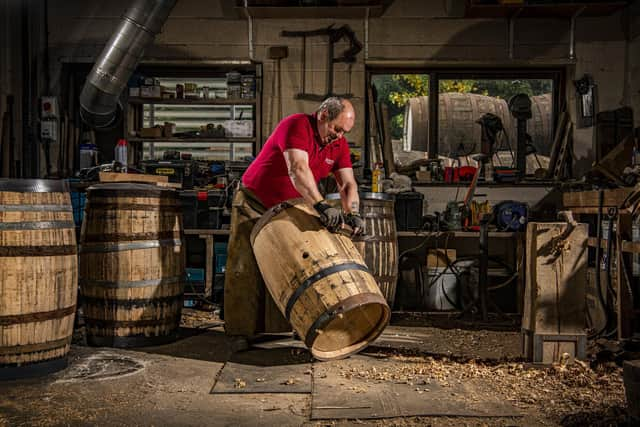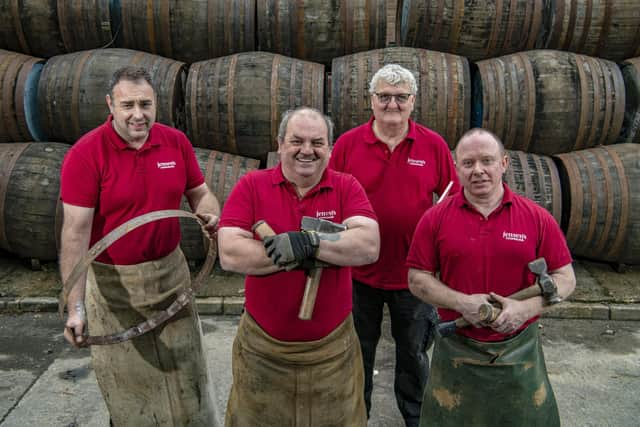Meet the Yorkshire master cooper who saved his ancient trade by pivoting from breweries to working with gin and whisky distilleries
Yet today he's one of three artisans in the ancient craft of making and repairing wooden casks and working at what is becoming a business success story in the heart of Yorkshire.
"I'm going to get to do it now until I die which is what I wanted to do," said Mr Simms.


Advertisement
Hide AdAdvertisement
Hide AdHopefully that day is a long way off but it's easy to understand the sentiment given the progress Jensen's Cooperage in Ripon has made over the last 12 months and events before it.
The 58-year-old was introduced to the highly skilled trade when he was 14 while on a school holiday job at Theakston's brewery at Masham. An apprenticeship at the same brewery was the forerunner to a long career which appeared to be coming to a close a few years ago, after running his own cooperage didn't work out and he ended up taking a job as a drayman with the Black Sheep brewery.
"I must admit when I had to go to Black Sheep because I couldn't get a job as a cooper and when I was made redundant I thought I was going to end up driving fork lift trucks for the rest of my life."
It was then he got a call from Christian Jensen, the founder of a gin distillery in London. Mr Jensen had known Mr Simms after the two discussed putting gin into wooden casks four years ago.


Advertisement
Hide AdAdvertisement
Hide Ad"He rang me in mid-October, one Friday night, and we talked for about three hours. We talked again on Monday and he employed me on the same day and told me to find some premises for a cooperage. I got the keys to this place on November 2 last year.
"When it first started it was just me and we thought it was going to be just me for two to three years while we built the business up but it's exploded with work coming from the English wine industry, English distillers, museums, breweries."
As a result two more master coopers, Jonathan Manby and John Carberry, have joined Jensen’s Cooperage in the last couple of months and another is due to join next month.
Mr Simms said the success might be linked to the cooperage’s ability to do small jobs, which include painstaking repair work, more gin companies choosing to branch into whisky adding a need for more casks and simply “being in the right place at the right time and picking some good trading partners.”
Advertisement
Hide AdAdvertisement
Hide AdIt might also be down to the decades of experience the company can boast in a highly-skilled trade - one for which there is no substitute for the years of experience of learning how to bend, shape and char and toast particular types of oak to create casks designed to meet the specific needs of wineries, distilleries and breweries.
As Mr Simms put it: “The whole ethos of this cooperage is it’s about quality and not quantity, so when we're repairing casks or making casks it’s done correctly, it's not done in a rush.”
An ancient craft
THE craft of coopering dates back more than 4,000 years to ancient Egypt.
The word ‘‘cooper’’ is derived from the Latin ‘‘cupa’’, meaning tun or barrel, and the number of people who used to make and repair casks in England is reflected by the number of people with the surname Cooper.
Advertisement
Hide AdAdvertisement
Hide AdAt one time many commodities used to be preserved and transported in casks but use of different materials for storage and increased mechanisation has meant few people are now dedicated to the craft.
There are now little more than a handful of coopers left in England though there are over 300 in Scotland, including apprentices, where the craft maintains relatively strong links with whisky distilleries.
